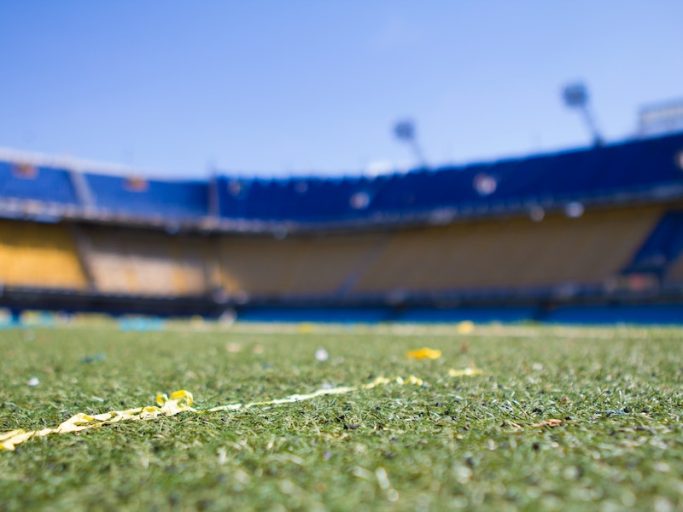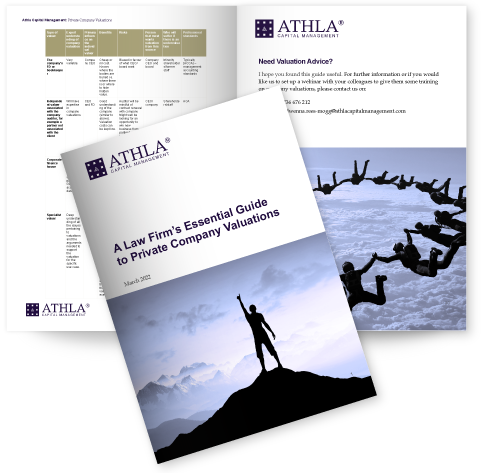Are the Red Devils overvalued?
March 7, 2023

I am not a football fan, but…
The Red Devils’ shock 7-0 defeat against Liverpool over the weekend has set me thinking about the proposed sale value of the club.
Manchester United is a truly iconic global brand.
It is so much more than a football team playing matches.
A small free float of shares are even listed on the New York Stock Exchange. You would have thought that would make it easy to understand its value, but as the free float is tiny, it’s what the Glazer family, the majority owners, want to sell it for, that matters.
So what is it really worth?
The FT wrote a brilliant article on the issue the other day, but even that analysis which suggested that true value of the club may be far lower than that being mooted in the press, could look over optimistic.
It is rumoured that the asking price for this trophy asset is $6-7bn, but the FT mooted it could only be worth… $1.6bn.
The FT makes that case that the financial performance of Manchester United cannot possibly justify such a high valuation so there must be hidden value to justify the price.
It is believed that Sir Jim Ratcliffe, billionaire founder of Ineos, who has made his fortune buying up undervalued assets, may also make a bid.
No doubt the FT article and recent thrashing by Liverpool will have prompted him to tell his own team of valuers to look hard at why the sellers are thinking of demanding such a premium.
When I first arrived in the angel world (a scary) 23 years ago, I was told that I would find angel investors on the shareholder register of football clubs.
Successful business people like to own football clubs as trophy assets, I was told.
The Glazers who are selling Man U (they control 95% of the business) were an early overseas investor in the UK football scene, paying £790m for the Club in 2005.
It’s clear why they would be attracted to the idea of making just shy of 10x their money in under a decade.
The FT points out the £$3.2bn sale of Chelsea last May might have set a data point that captured the imagination of the Glazers and their advisers.
Bidding wars can make a difference to the price people are willing to pay for an iconic asset.
The Qataris are also reportedly looking at buying Man Utd – also activist investor Elliott Management is interested as are MSD Partners and Oaktree Capital.
There is probably some hidden value to be exploited at ManU.
Old Trafford is the biggest stadium in the Premier League and needs a facelift. There is land around the stadium that could be sold off for development.
The FT talks about exploiting NFTs (non-fungible tokens).
ManU still has a higher than average revenue compared with its peer group of elite European clubs. Despite finishing sixth in the league it was still the fourth largest club by revenue in Europe last year.
I mean, its brand is known even to me!
Man United may be doing worse in the League and financially than its great rival Manchester City right now and some might think that the only way is up from now on.
Ten Hag – the Man United boss – is optimistic.
However any recovery in commercial income from broadcast rights and sponsorship in all likelihood will continue be delayed until team performance improves.
Man United is heavily indebted.
A new owner who put in place a different investment structure as well as investing in the club and exploiting its untapped potential, could grow the equity value considerably, relatively easily. Such a buyer may be willing to pay more than core value to get the opportunity so to do.
But a buyer will also be thinking think about payback…
How many years will it take to produce the profits that can pay back the cost of acquisition?
Man United is trading on 28x EBITDA compared with 7x for Juventus or 4x for Borussial Dortmun.
Payback is going to take a long time unless the new owner does something remarkable to create value from property development etc.
The FT did some discounted cashflow valuation analysis.
It concluded that the company would need 17% compounded revenue growth for a decade and no increases in costs for the offer price to be worth it.
Free cashflow would have to grow at 38% a year, it says.
As the piece says “a huge pace for a mature business whose revenue is at least partially dependent on the vagaries of sporting success.”
The Chelsea sale and also that of AC Milan (acquired for c4.5x revenues) are markers.
The FT says however that this still brings the enterprise valuation of Manu to $200m below the price the Glazers are asking $200m on several $bns is not much but its still $200m.
The current market price of the shares is a reflection of the news that the club is in play, so does not really help and anyway, as I mentioned earlier, with such a small free float it is deceptive.
Dan Plumley a sports finance lecturer at Sheffield Hallam University, according to the FT, puts $4bn valuation on the brand (large fan base/new digital revenue streams).
However, as the UK football market is set to become regulated, this adds risk which justifies impairing value.
The FT does not mention one of our biggest concerns – inflation.
What £ spend will the vast majority of fans commit to the brand when mortgages and food costs are rising?
I am no expert on inflation in player wages, but from the odd headline I see, the best ain’t cheap and competition is growing all the time, so I cannot imagine those dropping anytime soon.
It would be interesting to undertake an exercise to see if there is any value in the squad that could be released I suppose. Perhaps selling some of the team and replacing them with cheaper alternatives might keep inflationary pressure on wages down.
Given the trajectory of top players wages and the club’s ambitions, that seems highly unlikely!
Alas, while I’d love to get our team to do a valuation exercise on Man U we are simply too busy doing what we love – we’re currently finishing up valuations of companies in property, medical technology and AI!


